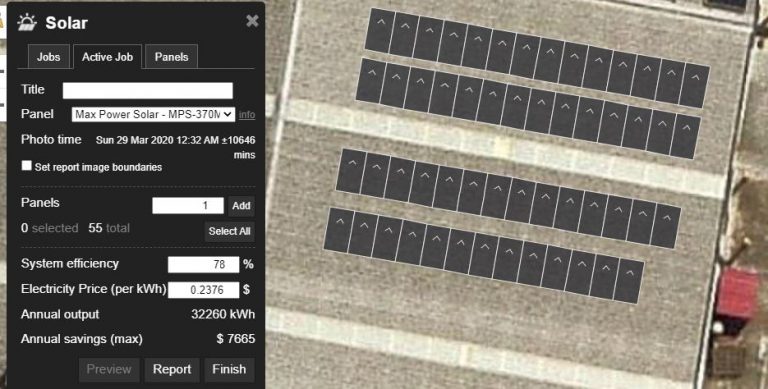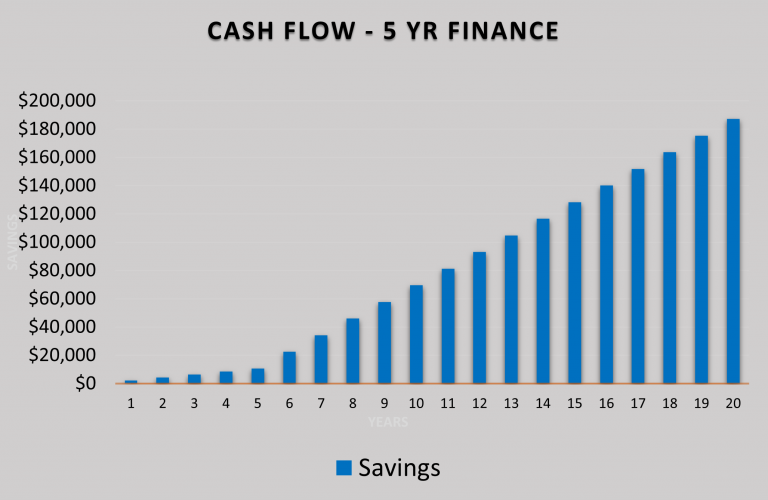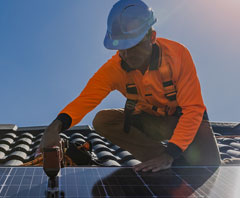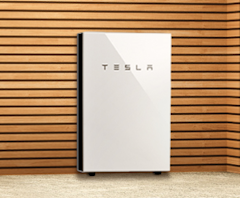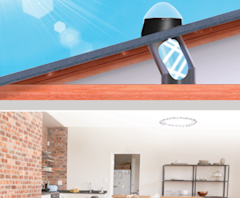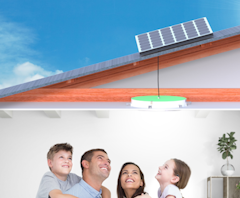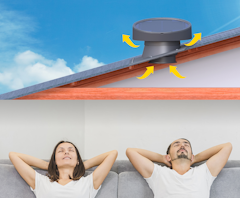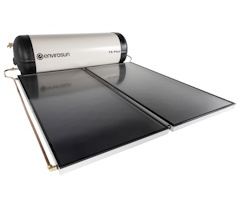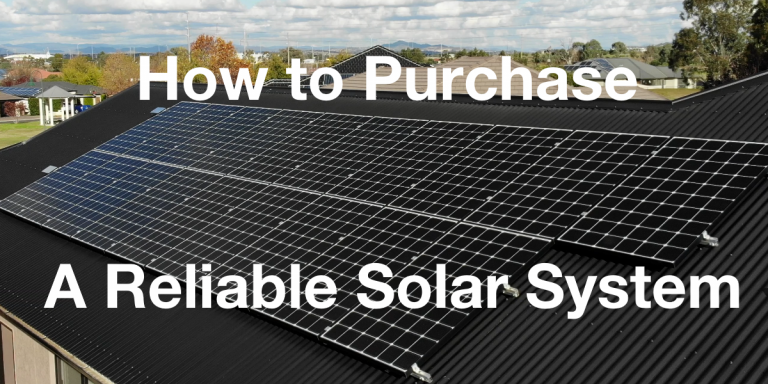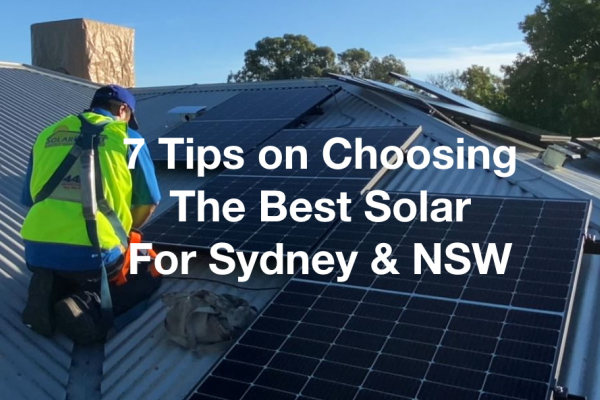Many of us when we explore if we should get solar for our home or business do not really know where to start with our research. Sydney and the NSW coastal areas and the NSW regional areas offer some of the toughest environments for solar systems, not only in Australia, but the world. We offer 7 tips to help you choose the best solar system that will stand up to this environment.
A few years ago, a particular popular solar panel which was the most installed brand in 2015 and 2016. The panel had a manufacturing fault in the way the backing sheets were laminated. This resulted in water getting into the panels and creating corrosion, making the panel fail. Guess where they failed first in the world? Yes – in Australia and especially in Sydney along the coastline.
We have a combination of environmental factors that can out solar panels and inverters under stress. Our region has a much higher salt content in the air as we are often close to the coast (within 15 km), Also during parts of the year we have a higher humidity than many other parts of the world.
Combined with our regular rainfall and strong winds, this creates a unique exposure to the elements for inverters and panels alike. This is why cheap solar can disappoint in Sydney and NSW. To help you navigate your path through the solar purchasing journey, here are 7 important tips to help you on the way.
Tip #1 – Only Quality Systems Will Last In The Harsh Australian Environment
Given the tough environment locally, it is recommended to only use quality panels, inverter solutions and racking to put the solar system together. Select great equipment to get the best long-term savings. A PV system is only as good as its weakest link.
Please do not discount the importance of quality installation work. For example, if we use a top-quality panel and a great inverter, that whole system can still perform poorly if an undersized electrical cable has been chosen to run the solar back to the switchboard.
Or if someone tried save a few dollars on the racking and mounting brackets and use a few less roof mounting brackets. Some installers to have the attitude of “The mounting brackets are under the panels, so no one will notice if we put in a few less. This will save us time and money”.
Tip #2: Use An Experienced Installation Company.
A solar energy system for your home is a long-term investment. If installed properly it will increase the value of your home, while also providing you with free renewable electricity during the day. If the solar system install not done correctly, it will cause innumerable holdups, and added cost.
The choice of which solar installer to use is probably even more important than the choice of which brand of solar module to purchase. That’s why you must always work with a CEC-certified solar installer. The Clean Energy Council certified or accredited installers in Australia (CEC). The CEC ensures that the installers have received the necessary training and meet the design and implementation standards.
SolarBright has many CEC approved installers, and we have been installing solar PV and solar hot water systems for more than a decade. In that period, we have installed close to 10,000 systems on homes in the wider Sydney region, from Gosford to Wollongong, the Blue Mountains and Bondi – as well as in regional NSW, as far away as Tamworth and Port Macquarie. This long-term approach also ensure we can support your solar system with good after sales support.
Tip #3: Choose The Right Installation Company To Ensure Solid After Sales Support
If you’re looking to purchase solar for your home, you can feel a little overwhelmed. It’s difficult to know how to choose between a cold caller, a door-to-door salesperson, or somebody trying to offer you a massive discount if you purchase their product on the spot.
Check they have the right resources to offer solid post sales support. Do they operate out of company owned premises? Or just a fancy CBD address with an overseas call centre? Some solar installation companies that appear to be large national businesses operate like this. The only person you will ever see is the man in the van that turns up on installation day.
Installers searching to do a cheap job frequently fail to visit your home prior to the installation. When considering solar ask them to send out a consultant to meet with you and conduct a site inspection. In this inspection they need to consider roof tilt, switchboard, shading, and electrical grid connection. Steer clear If they so no and say we can do it all over the phone and via email.
If they will not meet with you before purchase, how will they send someone out if there is an issue with the system? These types of solar companies are called Solar SALES companies. Their focus is on the sale now, not the service in the future.
Lower priced systems means that the installer has not got the funds to put aside sufficient resources for after sales service. This means that if your system breaks down after a relatively short period, you may find it difficult to get the initial installation company to get back and fix what went wrong.
Yes of course, the system is less expensive initially, but you’ll save less money over the long term, as you will dismantle such a solar system, earlier than a quality solution.
Going with a well-established business like SolarBright increases your chances of receiving continuous support and allows you to speak with a real person if you need to file a warranty claim.
Tip #4: Avoid Installers Using Unlicensed Subcontractors
Sadly, there are several individuals and businesses out there that are willing to sell you cheap solar power systems. They cut corners to achieve the cheap price. What you want is a quality installation which will give you a solid long lasting energy solution.
To be able to sell very cheap some solar companies employ sub-contractors who then use workers with little electrical qualifications, because such employees are cheap. This lack of knowledge is then reflected in the quality of the installation.
At SolarBright we only use inhouse staff or sub-contractors that have worked with us for many years. They specialise in solar and have all the appropriate licences and qualifications.
Tip #5: Make Sure To Get A Good Monitoring Solution
To be able to check the performance of the system, ensure that that inverter in your system comes with a monitoring system. This important as it allows you to check everything is functioning properly.
It will also allow you to compare past performance with current performance and will send alerts if there are any issues with your system. If you add an optional energy meter to the solar system you will be able to track your power consumption and export as well
SolarBright PV systems come with monitoring solutions to allow you to observe the critical information to determine the overall solar and solar battery system performance.
Tip #6: Think Ahead For Batteries, EV Charging And Smart Appliances
Simply switching out previous home equipment for relatively new “clever” systems and technologies can be an excellent way of opening your residence to innovation, enabling you save some cash on utility services while also gaining access to new aspects of convenience, safety and reliability.
When most people think of intelligent homes today, they think of internet-connected products like heating systems and home entertainment. Many people, nevertheless, are unaware that new tech innovations also apply to solar. You could maximise the benefits of renewable power in your household by combining solar power and intelligent devices, for example to heat your hot water with solar electricity.
The main reason that smart home technology and solar power complement each other so well is that they really strive to make your home run as effectively as possible.
While smart home systems can help you save resources and costs by letting you programme your optimal temperature through a smart temperature controller or turning off your lights when you’re not at home, solar energy will help you maximise the economic and environmental benefits of your estate.
SolarBright can advise you what solar system is right for you today, so it can generate enough electricity in the future to charge an electric vehicle, or battery for night-time consumption or divert the excess solar electricity during the day into hot water generation.
Tip #7: Make Sure You Check The Product Warranty Is Strong
Solar panel warranty coverage safeguards your assets and are an essential component of any solar installation.
There are several types of warranty coverage that protect your panels and recognising the difference between them as well as which products have the best warranties is critical to ensuring you get the best possible deal for your solar power system.
A solar panel does degrade over time and the panel will come with two warranties – a performance warranty and a product warranty. The performance warranty warrants as a that the panel will still produce 90 percent of initial production capacity after 10 years and 80 percent after twenty-five years as a minimum.
A standard product warranty will generally guarantee 10 to 15 years of trouble-free operation. The product warranty protection for a solar panel serves to protect you against troubles such as manufacturing problems water entering the panel or premature corrosion issues.
Between these two warranties, the Product Warranty is the more valuable, as its much more straight forward to claim. Let’s say you notice some corrosion on a panel and the inverter has shut the system off for safety reasons. That’s a clear warranty case and the panel manufacturer should come to the party to replace the product. On the other hand, a performance warranty will require a more sophisticated analysis of the ongoing performance of the system and is harder to prove. For this reason, go with strong product warranties and be not hoodwinked by long, but less meaningful performance warranties.
A Final Word – How to Choose the Company to Buy From?
When selecting an installer or retailer to process your solar system installation, it is important that you make sure they are CEC approved retailers and installers. SolarBright has this extra qualification.
The CEC Approved Solar Retailer programme shows companies selling renewable power to are committed to honest and reliable marketing efforts as well as industry best practices.
The programme, which has been approved by the Australian Competition and Consumer Commission (ACCC), aims to increase customer service and education, so solar customers can make an informed choice with peace of mind.
Accreditation from the CEC is a must-have qualifying criterion for anyone involved in the installation of solar power systems. People who have been accredited by the Clean Energy Council have completed the required coaching to construct and configure the solar system, solar battery storage, and other renewable energy components. CEC-accredited installers strive to adhere to the best practice, resulting in mechanisms that are secure, dependable, and satisfy customer needs.
If these two criteria have been met by your retailer and installer, there are a few other things you can look for to make sure you get the best service. Firstly, your quote must be comprehensive, including a suggested system design, predicted production, warranty conditions, and a detailed list of elements.
Secondly, you must never feel compelled to make a purchase. The decision to move ahead with purchase and a payment is yours alone, so make sure you are comfortable with the info supplied.
Have you gotten answers to all of your queries? Do you know the mechanism of setup, grid connection, and monitoring? Have you been notified of any accessible after-sales assistance?
When choosing SolarBright you can be assured our decade plus of solar experience will give you a peace of mind installation at a fair price, ensuring you save on your electricity bills for years to come.
